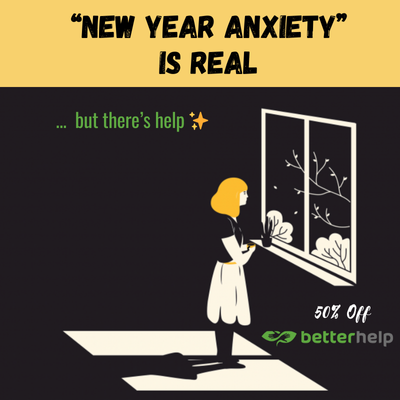This morning, my partner and I sat in bed, drank our morning coffee together, and chatted about what was on our agendas, our feelings, and did our typical morning ritual of connection from 5:30 a.m. to 7 am.
As we spoke about our lives, work, family, summer plans and how our nights sleep was, one of topics was based on the Depp vs. Heard trial.
Now, I will alert you to the fact that both of us are pro-Depp and I could easily write books worth of essays on my reasoning. However, I feel that the vast majority of our society (worldwide, for that matter) is leaning toward him in this case.
As we spoke this morning, I found myself saying, “You know, typically, I would not be good with the confidentiality breach around such sensitive matters as two people’s marriage—making it public live TV as though it is a Netflix series we are all excited to binge-watch with great anticipation. However, in this case, I am grateful that the op-ed she wrote was done where it was and that we are allowed this valuable insight into the mockery and psychological manipulation that can take place within intimate relationships. If this was not on public display and we were just relying on the reports of the media, we would view everything so differently. Depp would more than likely remain a bad guy instead of finding public redemption the way he is.”
The reality is that this public witnessing of the interaction of Depp and Heard with each other, the jury, the judge, the public (you and I), is powerful. It reveals so much truth—and truth—although it does not need to fight for what it is—must allow itself to be seen.
This trial has allowed us an intimate view into the micro-expressions, the tonality of how they answer, the body language, acting, authenticity, and the emotion or lack thereof. This trial has given us great insight into where our world is at in relation to how men and women come together and the wounds that we form. It has revealed to the mass public the deceit, the malice, the consciousness of the abuser, and how one can so easily become a victim or scapegoat that is always made to be the villain by their abuser.
I wish that I could say that I was not personally familiar or even guilty of these events. I have in the course of my human existence been on both the receiving and giving end in different ways. Much like Depp’s statement, “No one is perfect,” he is accepting of his faults, of his humanness and error.
Often, the victim blames themselves for how things played out. They forgive to a great degree and do not attack their abuser even after they make a personal commitment to set boundaries and not allow for any further abuse.
The abuser, on the other hand, refuses any acceptance of responsibility and will portray themselves as the abused, insisting that they did nothing wrong and cannot forgive or let be. We hear this with Heard saying, “Just leave me alone,” in her closing statements to the jury. When, in fact, it was per her initiation of writing the article and claiming what she did two years after the actual divorce and a $7 million dollar payout from a 15-month marriage. She could not let it be and needed more attention to the subject, so she acted accordingly in a negative fashion and added more psychological abuse, as well as staining Depp’s character all the more.
Neither party in this trial that has become a viral sensation for our desire for drama and real-life TV is faultless—as is the case in any breakup or divorce. There are always two sides to the coin and the truth resides somewhere in between. The beautiful reality of the Depp vs. Heard trial and the ability to witness the evidence and their actions and reactions is that it opens up a portal of relationship lessons for all of its viewers. I cannot get into the entirety of these lessons here, but I am going to bullet point some of the significant ones that I believe are often overlooked in our everyday intimate relationships and can have zero to do with actual conscious abuse or adultery.
We could blame a slew on the age gap. We could point fingers of blame toward drugs and alcohol. Their careers put them into difficult situations with lack of time spent together and movie roles that could make the most secure person feel jealousy and fear. The stress and pressure from the constant spotlight from the paparazzi, many of us could only imagine. Relationships are the most challenging expedition of our lives. And that is without all the above to boot.
Here are five relationship lessons the average couple can learn from the Depp vs. Heard trial:
1. Unidentified roles, values, and goals
Over and over again in my coaching, the first questions I ask people who are wanting to get into their soul mate relationship are: “What are your core values? How do you see your role in the relationship? And what are your goals for the relationship, for the next six months? Two years? 10 years?”
These are foundational questions for any of us who desire a stable, loving, healthy relationship. Without the inquiry to a potential partner and “real talk” conversations, we risk severe disappointment, frustration, and lack of alignment in our relationships.
We see a prime example of this in the Depp vs. Heard trial when listening to some of the audios and the testimonies. We hear Heard say she wanted to have babies with Depp. We hear her complain about his “controlling words” around her choice of roles, dress, actions, and the image that she was showing to the public. We heard testimony from friends of Depp saying that Heard pressed him for marriage and so much more. There is an audio of Depp telling Heard that he thought he was too old for her and that she needed someone younger she could control more.
All of these statements reveal that they attempted to build a life with a marriage on chemistry and sexual attraction on the front side. They didn’t seem to have the qualifying deep conversations around who they were or what they valued or wanted. And if they did, they did so inauthentically and most likely chose to give answers they thought the other wanted to hear but were not true to who they were.
Unfortunately, women are more guilty of this than men, and the younger a person is, the reality is that they, themselves, do not know who they are or what life is about and can easily get caught up in the heat of desire for material items or attention.
2. Ignoring our childhood wounds
There was much mention in the trial about their childhoods, especially Depp’s and the trauma he went through. Bringing up the reality of childhood wounds and trauma in a courtroom is not the same as acknowledging it during a heated dispute, an emotional reaction, in dealing with our day-to-day perceptions or interactions with our spouse.
Here is where we see so much pain rise up without the understanding as to why we feel the way we do or think the thoughts we think. No human being escapes childhood without some trauma. Our parents do the best they can, but trauma and wounding are a part of all of our life stories—they make us who we are.
However, we do not have to be ruled by these wounds. And it is certain that if we desire to have a healthy relationship and to call in our soul mate, then we must undoubtedly work on healing our childhood wounds, triggers, and reactive nature.
Depp’s reactions to Heard’s outraged behaviors and emotions were a direct mimicking of what he did as a boy and witnessed his father doing with his mother. He also manifested this relationship with Heard partly to work on the wounds of his mother relationship and this is why he was so attracted to a woman who revealed a highly emotional toxic situation on multiple fronts (even physical). We see this with women frequently in our “daddy issues,” but we also tend to make light of what is really going on.
If we are to achieve a healthy, loving, and stable relationship, then we must actively and consciously accept reality and work on healing with a professional resource such as a coach or therapist around our childhood wounding and trauma.
3. Difference of opinion versus arguing
It’s a natural and healthy thing to have a difference of opinion in any relationship. We all have our own views, perspectives, and beliefs. To share our differences is good and can even help to solve many issues in relationships.
However, often, what we find is that we have a difference of opinion and we end up arguing with our partner in an attempt to shift who they are, what they believe, how they feel, or what they want instead of accepting them. We make “them” evil or bad in doing so and get caught up in a battle of the ego instead of finding a resolution to a challenge.
When we choose to stop seeing, hearing, listening, or accepting our partners, we move into a self-centered state of “I am right. You are wrong. No love is here.” This is based on a desire to control an outcome and potentially the other person. We shut down communication, as well as our hearts, and we emotionally distance ourselves from our spouse, creating a barrier to love and to “fixing” any perceived issue.
Difference of opinion is never based on such things as name-calling, belittling, pointing out faults, or blaming. It has nothing to do with below the belt comments, exaggerated emotional displays, or any sort of playing of the “victim card” or the acting out of the bully.
Depp vs. Heard revealed to us multiple accounts of two people who were constantly fighting for who was right instead of how we can connect and achieve what we want. Granted, Depp showed beautiful character in many audios in his slow, conscious, logical responses to Heard’s excessive emotional craze. He attempted to make points and look for answers. However, he was not met by a responsive partner—which, unfortunately, is all too common in marital arguments. One person will typically be controlled for a time frame and the other will pour gasoline on the fire until they break their partner down and achieve the reward of attention through heightened emotional combat. Again, we can see this more often with women than men, as the sexes are wired significantly differently in many cases and women’s reality overall is based in emotion and men in logic.
If we want to have a healthy, happy, safe relationship container, it is vital to be self-aware and catch the arguing in the front stages. Call yourself out on your ego and your desire to be right instead of finding a win-win, and develop a “pause button” where you can get space from the high emotion and communicate better. This requires both parties’ commitment and attention to each other and themselves, with an aligned goal of communication, well-being, and love.
4. Lack of Respect
There are countless events shown to us in this Depp vs. Heard trial of the overall lack of respect—especially that of Heard to Depp. She belittles, mocks, shames, and disregards him in so many audios. Calling him a baby, a child. Telling him he should be embarrassed. That he is weak and not a good father or husband. None of these are the words of a woman who respects or loves her husband.
The issue is that he allowed her to lose respect and he did so by overly trying to accommodate, please, and not stand up for himself early on. He catered to her, as well, most likely, disregarding many things. The fact that he married her years into their relationship, after experiencing a consistent level of disrespect showed her that he had given over his personal power to her. In her eyes, this made him weak and not a “real man.”
A lack of personal boundaries will always result in the giving away of one’s own power and thus, a breakdown of respect. Boundaries are often difficult for us to uphold as well as honest communication around our needs and wants; however, these three things are foundational for the harvesting and support of respect in a relationship.
5. Lack of Compassionate Communications
If we take all the above points and wrap them into one result we will have this: a lack in the ability to be compassionate, empathetic, or kind in our communication.
Yet these things are requirements to make any relationship work. An inability to do these things reveals self-centeredness. This will often manifest itself in a condescending fashion or in what may appear as bitterness, resentment, even anger or rage. We shut down all communication with our mates when we cannot take ourselves, our needs, fears, feelings, and views out of any given situation and at the very least, attempt to put ourselves into the other’s shoes.
We most certainly may never 100 percent understand any other human being, but we can slow down and become aware as to how our actions, words, and assumptions may appear or make another feel based on flipping it back to ourselves and “acting” like it is happening to us.
We see in the Depp vs. Heard trial that this never happens. We have two hurt parties both fighting for their views and feelings. For all the arguments and conversations these two recorded (I am guessing either as evidence against each other or for the sake to review and get better), they never communicated anything but their pain, bodies, and egos to each other. They never stopped long enough to be present at any moment. It was always a case of one attacking and the other fighting or fleeing.
Compassionate communication is a practice of the heart. It is love based with a desire to find a happy solution and it requires emotional maturity and self-responsibility to achieve.
Again, relationships are the most challenging expedition of our lives.
It is also what we crave and what makes life worth living. We came here to this human experience to connect, to love, and be loved. It is through the evolution of relationship that we evolve as individuals and meet our authentic selves. It is where we find our purpose. This is what the human soul values and searches for.
Relationships make us matter. But it requires our attention, commitment, and adaptability to evolve ourselves into something better.
I hope these five key lessons from the Depp vs. Heard trial were helpful to you and that you take the time to look into your own relationship and do the work to make it a happy, healthy, thriving one.
~
Please consider Boosting our authors’ articles in their first week to help them win Elephant’s Ecosystem so they can get paid and write more.










Read 0 comments and reply